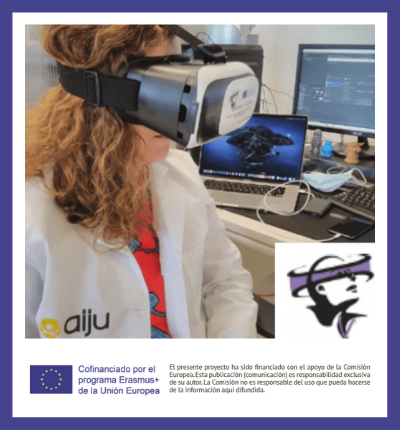The We learn to apply augmented and virtual reality in our technology class (Vlearning) project, co-financed by the Erasmus+ programme, is entering its final six-month stretch and remains a benchmark for educational centres. The project aims to implement virtual reality (VR) and augmented reality (AR) technologies at schools. To succeed in this task, an eLearning platform is currently being developed to provide training to all interested parties on the tools adapted for VR/AR use. Aside from more theoretical training on the use of these technologies, the platform will offer more than 100 practical activities that are being implemented at the European schools taking part in the project, namely Colegio Paidós in Spain, the Academy at Shotton Hall in the United Kingdom, OS Vizmarje Brod in Slovakia, and Säynätsalon yhtenäiskoulu in Finland. The European scale of the initiative also makes it possible to compare different education systems across the continent and allow students to take part in highly practical activities.
AIJU, together with Colegio Paidós, as project coordinator, will be present at the Meeting of Innovative Centres of Alicante, an event promoted by the DIM-EDU educational network and organised jointly with the Faculty of Education of the University of Alicante, with the collaboration of CEFIRE of Alicante and the GIDU-EDUTIC/IN research group of the University of Alicante.
The event will take place in April, and both AIJU and Paidós plan to organise a practical workshop for innovation coordinators, management teams, teachers of all educational levels, inspectors and educational administrators and specialists from companies operating within the sector. The aim of the gathering is to facilitate the exchange of knowledge and experiences so that they can be implemented effectively.
AIJU, as technology partner, will be providing IT support to teachers and educators and reviewing the degree of implementation at the schools while at the same time proposing activities within each selected theme. The secondary school pupils themselves will prepare activities using these technologies, thus learning how to put them into practice and becoming more creative in the process.
For more information: Natxo Seguí – tic@aiju.es
http://www.vlearningproject.eu/ – Twitter: @vlearning1
Facebook: @ VleaRning – Instagram: @vlearning1

